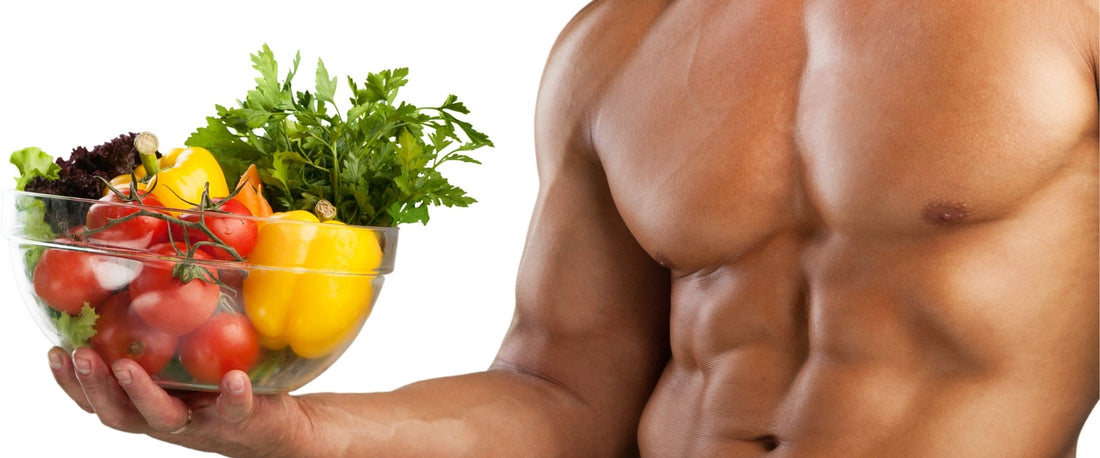Bodybuilding and plant-based diets may seem incompatible at first glance. Traditional bodybuilding diets often revolve around animal-based proteins like lean meats, eggs, and dairy. However, a growing number of athletes and fitness enthusiasts are discovering that it's entirely possible to build muscle and achieve a competitive physique on a vegan diet. This guide explores the essentials of vegan bodybuilding and provides practical advice on how to effectively build muscle on a plant-based diet.
The Foundations of Vegan Bodybuilding
Bodybuilding, regardless of dietary preference, revolves around three key factors: resistance training, adequate protein intake, and a caloric surplus. Resistance training creates microscopic damage in the muscle tissues, which then repair and grow bigger and stronger during recovery periods. Consuming enough protein is crucial for this repair and growth process, while a caloric surplus ensures you have the extra energy needed to build new muscle tissue.
Vegan bodybuilding revolves around these same principles, but with all nutritional needs met through plant-based sources. This might seem challenging due to common misconceptions about plant-based diets, such as the belief that they're inherently low in protein. However, with careful planning and a bit of knowledge, a vegan diet can provide all the necessary nutrients for bodybuilding.
Protein and Vegan Bodybuilding
Protein is a crucial macronutrient for muscle growth. The amino acids that make up proteins are the building blocks of muscle tissue. While animal-based proteins are complete, meaning they contain all essential amino acids, many plant-based proteins are not. However, this doesn't mean vegans can't get all the necessary amino acids. By consuming a variety of plant-based proteins throughout the day, vegans can get all the essential amino acids their bodies need.
There are plenty of high-protein vegan foods suitable for bodybuilding. These include lentils, chickpeas, tofu, tempeh, seitan, quinoa, and various legumes. Additionally, protein powders made from pea, rice, or hemp can help boost protein intake, especially around workouts.
Other Nutritional Considerations
While protein is important, vegan bodybuilders also need to pay attention to other nutrients. Some nutrients, including vitamin B12, iron, calcium, iodine, and omega-3 fatty acids, are found predominantly in animal products, and vegans may need to consume fortified foods or supplements to meet their needs.
It's also crucial for vegan bodybuilders to consume enough calories. Plant-based foods tend to be less calorie-dense than animal-based foods, so vegans might need to eat larger volumes of food or focus on more calorie-dense plant foods, like avocados, nuts, seeds, and whole grains, to achieve a caloric surplus.
Practical Tips for Vegan Bodybuilding
Diversify your protein sources: Include a variety of plant-based proteins in your diet to ensure a balanced intake of all essential amino acids.
Use supplements wisely: Consider using vegan protein powders, especially around workouts, to ensure you meet your protein needs. Also consider supplements for nutrients that can be harder to get on a vegan diet, like B12 and omega-3s.
Monitor your caloric intake: Make sure you're consuming enough calories to support muscle growth. If you're struggling to eat enough, try incorporating more calorie-dense plant foods into your meals.
Don't forget about recovery: Muscle growth happens during recovery periods, not just during workouts. Make sure you're getting enough sleep and rest days to allow your muscles to repair and grow.
In conclusion, vegan bodybuilding is not only possible, but it can also be a healthy and sustainable approach to achieving your fitness goals.
Below is a sample meal plan for a vegan bodybuilder. This plan includes an ample amount of protein and calories to support muscle growth and recovery. Please note that individual caloric and nutrient needs may vary based on body size, activity level, and specific fitness goals.
Breakfast
Tofu scramble with mixed vegetables (spinach, bell peppers, onions)
Whole grain toast with avocado
A glass of fortified plant milk (such as almond or soy milk)
Supplement: Vitamin B12
Mid-Morning Snack
A smoothie made with banana, mixed berries, spinach, flaxseeds, and vegan protein powder
Lunch
Lentil salad with mixed greens, cherry tomatoes, cucumber, and a dressing made with tahini and lemon juice
A serving of quinoa on the side
An apple for dessert
Afternoon Snack
A handful of mixed nuts and seeds
A piece of fruit, such as a banana or orange
Pre-Workout
A bowl of oatmeal topped with berries and a scoop of vegan protein powder
Post-Workout
Vegan protein shake made with plant-based milk
Supplement: Vegan branched-chain amino acids (BCAAs)
Dinner
Tempeh stir-fry with mixed vegetables (broccoli, bell peppers, snow peas) and brown rice
Supplement: Omega-3 (algae-based)
Evening Snack
Greek-style vegan yogurt with a handful of granola and a drizzle of agave syrup
Remember, this is just a sample meal plan and can be adjusted based on individual preferences and nutritional needs. Always consult with a healthcare provider or a certified nutritionist to ensure your dietary plan supports your individual health and fitness goals.

